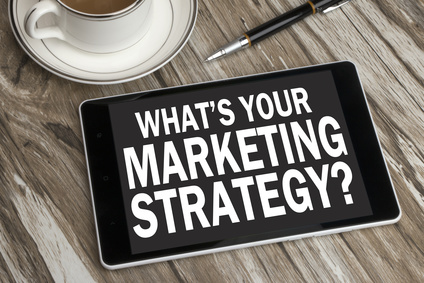 A recent discussion on the Chief Marketing Officer Network group on LinkedIn based on the post, The Death of Marketing Strategy by Glenn Myatt, caught my eye and got me to wondering: has it really come to this that we are questioning whether we need a marketing strategy? what happened?
A recent discussion on the Chief Marketing Officer Network group on LinkedIn based on the post, The Death of Marketing Strategy by Glenn Myatt, caught my eye and got me to wondering: has it really come to this that we are questioning whether we need a marketing strategy? what happened?
The post talks about the fact that while new models appear regularly, the issue is that one model is chosen without looking at others and then the prescription from that model blindly applied to your business. It also highlights how the rise of digital marketing has caused marketers to become very tactical and just use the “next big thing”.
I couldn’t agree more with this second issue and have talked many times about the fact that marketing is not just a collection of tactics and how using the new shiny object without asking why is just a recipe for failure. But, I’m not against using models as they help us to not recreate the wheel each time. In fact, I recently proposed a new one for integrated marketing. However, these models should not be used without a clear marketing strategy behind them either.
It’s clear though that one of the biggest issue in many marketing plans is the lack of strategy which for me is a direct result of the fact that very little time is spent on it anymore. Marketers need to take a step back and look at everything with a fresh set of eyes. They need to ask “why” and spend the time needed to develop a strategy.
With that in mind, here are five key elements that will help you look at marketing more strategically:
- Create measurable objectives: So most plans have objectives but are they really measurable? Raising brand awareness doesn’t count unless you outline what you plan to increase it by and measure. Generating X marketing or sales qualified leads and building a $Y pipeline are significantly better. I also believe strongly that your objectives need to be focused on helping sales generate revenue. You can’t be strategic if you don’t know what great looks like and then figure out how to get there.
- Pinpoint your target audience: For me, this is probably the biggest piece missing when you build your plan based on some model or framework. Many times, it’s just applied in the generic sense when you really need to understand your target market and identify the buyers before adapting the framework as it applies to them. And, you need to be specific in terms of which companies and then who you need to reach within them. The VP of IT infrastructure at a large retail banks is much better than saying you target enterprise IT groups.
- Identify the trends and customer problems: Too many companies talk about their product and why it’s great but that is of little value to the customer if it doesn’t solve their problems. You can start by looking at key trends in the industry but then you want to find the customer pain points that needs to be solved so they can capitalize on these trends. It’s imperative that you “sit” in your customers place and not look at everything from your perspective.
- Research the competition: You can develop the greatest product that perfectly solves your potential customer problems but get absolutely no where if others are doing, or maybe more accurately, saying they do the same thing. And, maybe they even say they can do it better. That’s why it’s crucial to have a detailed understanding of what your competition (both direct and indirect) are doing and then making sure you can differentiate your solution from their offering clearly.
- Define you brand and messaging: Once you have done the previous four elements, then you can define your brand and messaging. You need to make sure your message is simple to understand and that your brand is consistent. Too often the exact opposite happens when companies develop a very complicated message that no one can understand that constantly changes as they continue to refine it. Remember your brand can only stand for one thing in the prospect’s mind so make that count for what you want.
I could definitely go on and look at more elements to make your marketing more strategic but the last thing I want to do is overwhelm so that you don’t execute. Because while I believe strategy is very important and far from dead, you can’t spend all your time developing the perfect strategy and then fail to execute. If I can guarantee one thing, your business will be dead if you don’t execute and no strategy will bring you back from that.


Leave a Reply